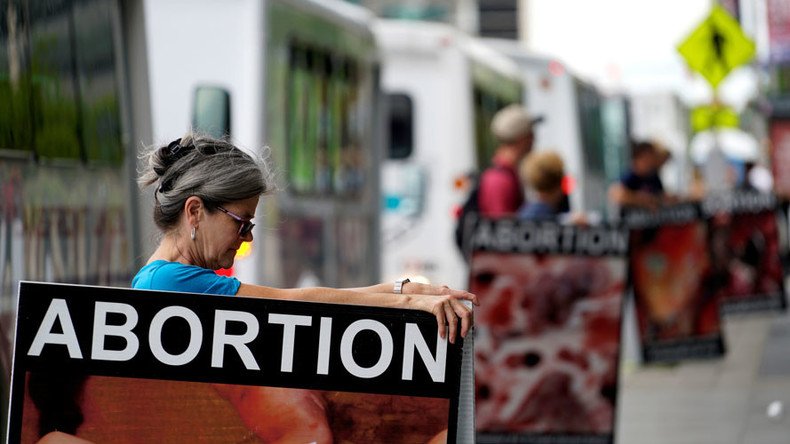‘Abortion is murder’ initiative could be headed to Ohio voters

Three Christians in Ohio are defiantly trying to overrule the landmark Supreme Court decision Roe v Wade by proposing a voter referendum that would classify abortion as “aggravated murder.”
Those who procure or carry out an abortion could be facing 15 years to life in prison, if the initiative makes it on the ballot and passes.
The proposal, which was submitted to Ohio Attorney General Mike DeWine’s office this month, details how it wants to "criminalize the killing, known as ‘abortion,’ of all pre-born human beings in the Ohio Constitution.”
Its aim is to “prohibit abortion of all unborn human beings, without exception, and classifying it as aggravated murder in the state of Ohio."
So, Ohio wants to amend it's constitution to state that abortion is aggravated murder. https://t.co/tfYXG8sYjT#ughpic.twitter.com/0rLAi6LdfW
— sandra sánchez (@sandrasanchez) September 8, 2016
The proposal describes an "unborn human" as "an individual organism... from fertilization, whether fertilization occurs inside or outside of a human, until live birth."
There were an uncounted number of signatures attached to the proposal, with 1,000 valid signatures of registered voters needed for approval, according to the Cleveland Dispatch.
Ohio is really trying to make abortion considered murder.. wtf #PROCHOICE
— Liz (@lizziegarthur) September 8, 2016
MT @JanisYoumans: ABORTION IS MURDER...pic.twitter.com/uaDEXOexYd#UnbornLivesMatter#PJNET
— Publius Fred (@Publius_Fred) September 8, 2016
The proposed law would not affect “genuine contraception,” human eggs or in vitro fertilization (IVF).
Anthony Dipane, one of the three who proposed the bill, explained to the newspaper that they are "just three Christians in Ohio” who are not connected to any anti-abortion rights groups.
“We don't take donations. We don't pay people. We're financing this out of our pockets at this point,” he said.
MT @Fight4ProLIFE2: Abortion Is Murder. LIFE Came from GOD. Respect Life. pic.twitter.com/7nb1RAdTxJ#UnbornLivesMatter#PJNET
— Rooster USA (@NW_Rooster) September 8, 2016
https://t.co/6Zz34UvNVi Stop treating women like criminals because they want control and rights over their own bodies. #It's2016
— brave little toaster (@Meister_hockwr) September 8, 2016
DeWine, a Republican known for his opposition to abortion, has until September 12 to determine if the wording of the proposal is accurate, fair and truthful, as well as to verify the signatures.
If all is in order, it’s then passed onto the Ballot Board. The amendment's proponents would have to secure just under 306,000 signatures to secure its place on the ballot, which would most likely be in November 2017.
Ohio to introduce bill requiring burial or cremation of fetal remains #PlannedParenthoodhttps://t.co/3NthErReMzpic.twitter.com/Mk2d3Sg3Ae
— RT America (@RT_America) December 17, 2015
From this stage, pro-choice advocates could then challenge the amendment, with the Ohio Supreme Court having exclusive jurisdiction over its constitutionality.
The proposal is only the second of its kind across the US, with Oklahoma’s Supreme Court rejecting a similar measure in March 2016, ruling that would be in contravention of Roe v Wade.












